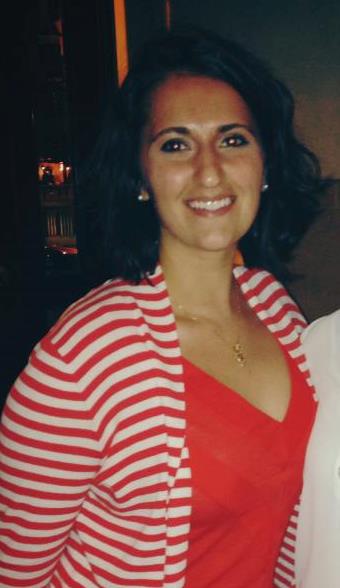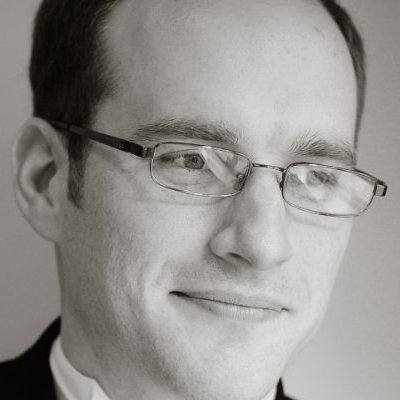 What is your current position?
What is your current position?
Assistant Chief of the Career Program for the Army’s Legal Career Program.
What year did you graduate from UConn? 2005, BS in Business, 2006 BA in Classical Languages
Where did you go to law school? How did you choose that school?
New England School of Law. When I was looking at law schools, I knew I wanted to stay in the Northeast and at an accredited university. I took the LSATs with a less than stellar result but had good grades at UConn. I was accepted to a school in California, Albany Law School and New England. New England was in the center of Boston and I wanted to live in a city.
What year did you graduate from law school? 2009
UConn Experience
Major: International Business and Classical Languages
How did your major help you prepare for law school and for practice?
When I was in law school, I wanted to study International Law. Luckily I took most of the courses or preliminary courses at UConn so I felt more comfortable in the work I was doing. Also, I took eight years of Latin, which was not necessary, but helped decode some legalese in my reading assignments.
What organizations and activities (e.g., clubs, sports, study abroad) did you participate in while at UConn?
Delta Sigma Pi, Study Abroad (Paderno del Grappa), Colleges Against Cancer (Relay for Life and the Cancer Society) and the Classical Languages Fraternity.
What jobs or internships did you have while at UConn?
I worked with Sodexho (at the concession stands) during the year, along with the Career Placement Office in the Business School. I also did an internship with Casey Fuel in CT for my small business class. I also worked at the library during my first few semesters in the circulation and map departments.
Did you take any time off?
No.
What is one piece of advice you’d give to a current UConn student?
I would suggest picking a major that you love! When students say they are studying pre-law or political science, unless that is their passion, it is unnecessary. Law school will teach the law, study what moves you. You can then translate those skills and that knowledge into a legal career later since almost everyone and every topic needs an attorney. Also, the more you love a subject, the more work you will do in that class and the better your grade (which is really the way that you are getting into law school). If you can start your legal career in college by taking classes in compliance or regulations, I would! Being more familiar with law allows you the freedom in law school to take a course that you might not have thought of.
I would also STUDY ABROAD! I was lucky enough to study abroad in law school again between jobs, but not everyone has that luxury. Most law students take internships between their two summers so they do not have the ability to pick up and go to another country. If you know that you want to attend law school, start networking now so that you can get the job in that law firm or office before you start law school. Also, get a start on the LSATs. I know I waited until my last year and I was “stuck” with my poor LSAT score.
Law School Experience
What programs did you participate in during law school?
I was a law student at night so I worked during the day, clerking at a local firm.
During my first two years of law school, I worked as a recruiter for a local masters program and then my final two years at a medical malpractice law firm. I studied abroad in Malta and was part of Phi Alpha Delta.
Were you active in any student groups? Which?
Phi Alpha Delta
Did your involvement with those specific programs or organizations help you in your career path or in any other ways?
No, they did not. However my career was not a traditional one. I met my husband in law school and he was commissioning in the Army that following year. I followed him to DC and found a job with the Army as a civilian.
What is one piece of advice you wish someone had given you before law school?
Work your hardest and get the best grades you can, but NETWORK NETWORK NETWORK. Even if you cannot get a job through that network, you will feel less alone in your job search.
Work Experience
Describe your practice setting.
Government Agency (US Army)
Area(s) of practice.
Administrative,Civil Litigation,Consumer,Family Law,Personal Injury,Torts,Tax,Trusts & Estates
How did you choose this area of law?
It choose me through my marriage with my husband. In the Army, we do a little bit of everything to prepare our soldiers for deployment.
Is there a typical day? How would you describe it?
I am the Assistant Chief to the Army’s Legal Career Program. The Army created Career Programs to train and retain their civilian employees. I also work under the Labor & Employment Office where I maintain the military spouse resume database. It is a new initiative to attempt to place military spouses in open legal positions within the Army. Due to my wide range of tasks, every day is different. Today I have been preparing for our yearly conference where we will decide what type of training is necessary for our workforce and how we can obtain those goals with our budget. Tomorrow I might be on a teleconference with spouses to see how their skills would fit the needs of the Army.
How many hours per week do you work? What is your schedule?
Around 50 – our hours of operation are 730 to 430.
Describe your work/life balance.
Currently my husband is stationed at Camp Casey, Korea so my balance is skewed with more work than life. After work, I normally attend an attorney function sponsored by the Army, Congress, the American Bar Association or my local bar association, Military Spouse JD Network. The weekends are meant for catching up with work and household chores.
What do you like most about your job? What would you change?
I would not change a thing. Every day is a new challenge and has different clients/topics in it. I could not be happier (or prouder) to work for the U.S. Army.
If you couldn’t be a lawyer anymore, what would you do? If you had a career before becoming a lawyer, what was it?
I would become a career counselor. I loved counseling students at UConn in the business placement office and I enjoyed it when I worked for the masters degree program. I mentor young attorneys now so it would be a natural transition for me.
Roughly, how much are you student loan payments?
$1000
How long do you expect to be paying your student loans?
For the full 20 years that are required (or possibly ten if I qualify for the Public Service Student Loan Program).
Have your student loans impacted your career choices or other life choices in any way? How?
They have not, I have been rather neglectful of my student loans otherwise they will tear you down and make you question your life choices. There is enough uncertainty in the U.S. Army lifestyle so as long as I can make my payments, I keep moving along.
Just for fun: If you could have dinner with any lawyer, real or fiction, living or dead, who would it be and why?
One of the supreme court justices (any one!) – their decisions were such a large focus in law school and have such a bearing on our lifestyle choices that I would love to pick their brain. Not to mention, who doesn’t want to be a Supreme Court Justice themselves?

